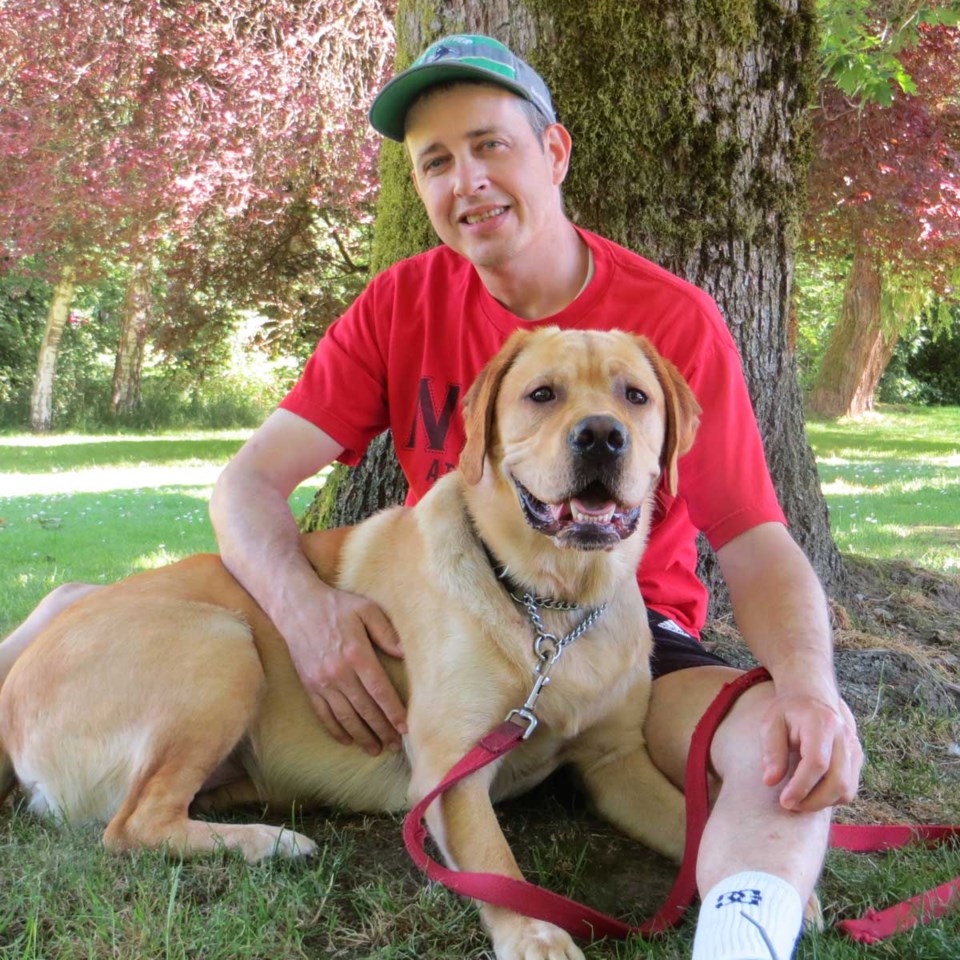FundAid’s model of crowdfunding is designed to make it super easy to use social media to spread the word about a campaign with friends and family.
But that blessing becomes a curse to the person who not only has no social media following but also no friends or family.
A few months ago, Vancouver Courier got a call from Vancouver resident Glenn Baker, whose dog had injured its knee, resulting in the potential need for surgery. Glenn is a former addict who had got clean thanks to Vancouver’s drug court program. He was now out of the Downtown East Side and living in subsidized housing. Tona was a support dog in everything but official title, helping pull Glenn out of the depression that still lurked in the dark shadows of his life.
Glenn couldn’t afford a telephone, let alone Tona’s surgery. He was distraught and anxious about Tona’s health, which took up a lot of his emotional resources. In the meantime, he was also doing his best to mitigate the injury by putting Tona on a diet and restricting play time with other dogs.
A volunteer with the Journey Home Dog Rescue took Glenn and Tona to Dr. Michael Orser at the Alouette Animal Hospital in Maple Ridge, an hour away from Glenn’s home. Dr. Orser said surgery was needed and, knowing Glenn’s circumstances, offered to do it at a reduced rate.
Glenn’s need for help was compelling. But could a crowdfunding campaign that relied on the generosity of strangers succeed? What would happen if Glenn built his hopes around the campaign and we weren’t able to raise all the money?
The decision to launch a campaign on Glenn’s behalf was not taken lightly. We built in safeguards, both for ourselves and donors. We decided it should be an All Or Nothing campaign: since we had to ensure the full amount was raised for the surgery to go ahead, donations would be treated as pledges until the full amount was raised. Only then would the donations be processed. We also let donors know the money would flow directly to the vet, rather than Glenn. It really helped when Journey Home Dog Rescue offered to give Glenn support with Tona’s care after the surgery as a way of honouring the donors’ generosity by making sure Tona didn’t re-injure his leg.
When the campaign was launched, Journey Home Dog Rescue sprung to action, calling on its supporters to make early donations to get the campaign off to a running start. An article about Glenn and Tona appeared in the Vancouver Courier and the vet clinic also helped spread the word through its social media channels.
The halfway mark of the $2,700 campaign was reached by the following Tuesday, just five days after the call for help went out.
Glenn did what he could to help, including distributing pamphlets that we printed out for him.
Donors responded. Some made donations in memory of their own dogs; some people, who had undergone knee surgery themselves, used donations as a way to say “keep the faith” that everything would work out.
Within a few weeks, we reached the goal. Surgery was booked and Journey Home Dog Rescue volunteered to take Tona to the vet hospital. Glenn spent a few anxious days at home alone and was deeply relieved when Tona came home to recuperate. Glenn followed all of the vet’s instructions for follow-up care and in a few months, they were going out for their beloved walks again.
This campaign would not have succeeded without the kindness of strangers. They cared about the life that Glenn and Tona had built with one another and were willing to help them overcome any barriers to their happiness. It was a campaign that could have so easily failed; everyone involved is so deeply grateful to everyone who helped us ensure a happy ending.
— Martha Perkins, executive director, FundAid.ca

